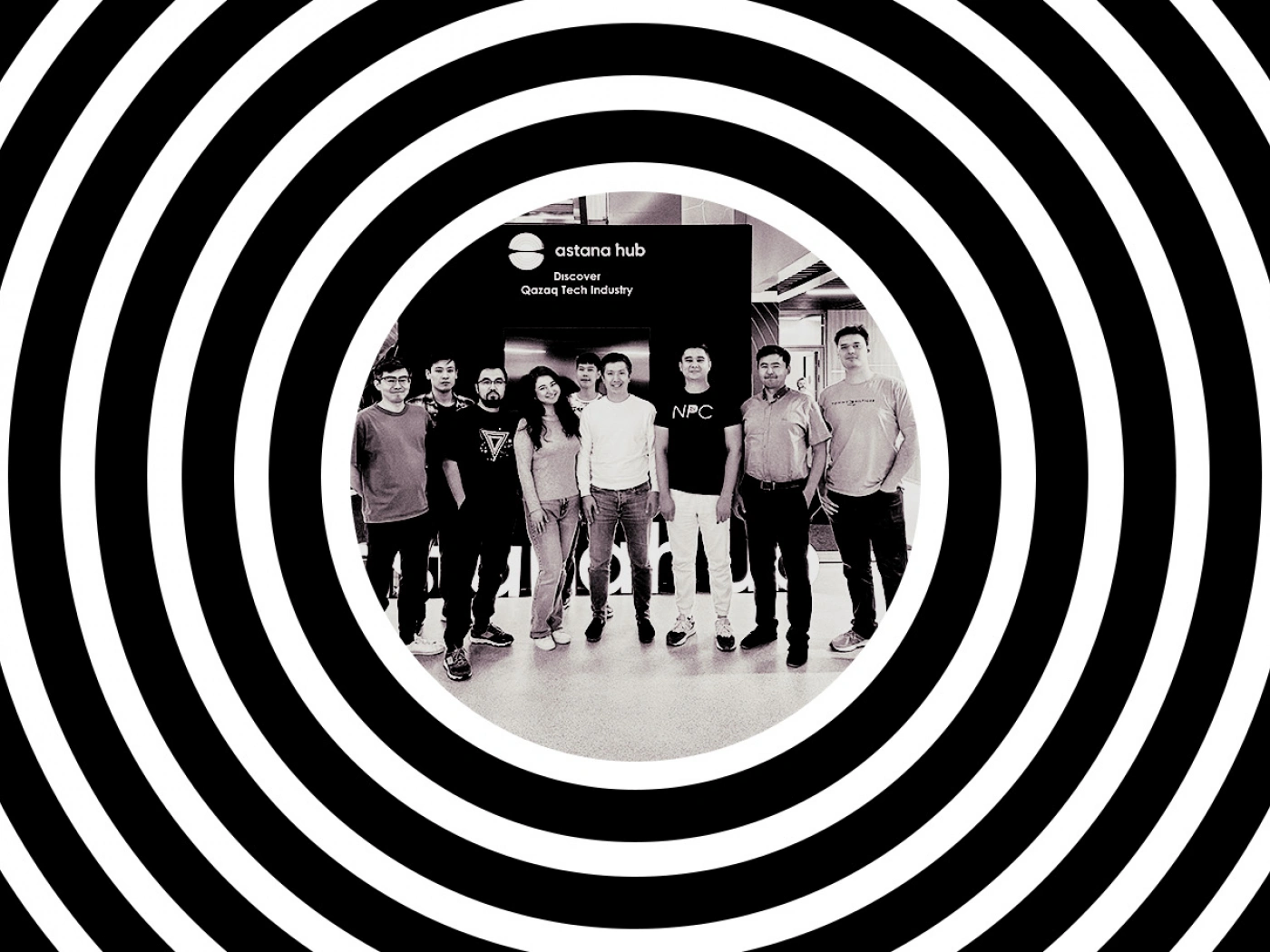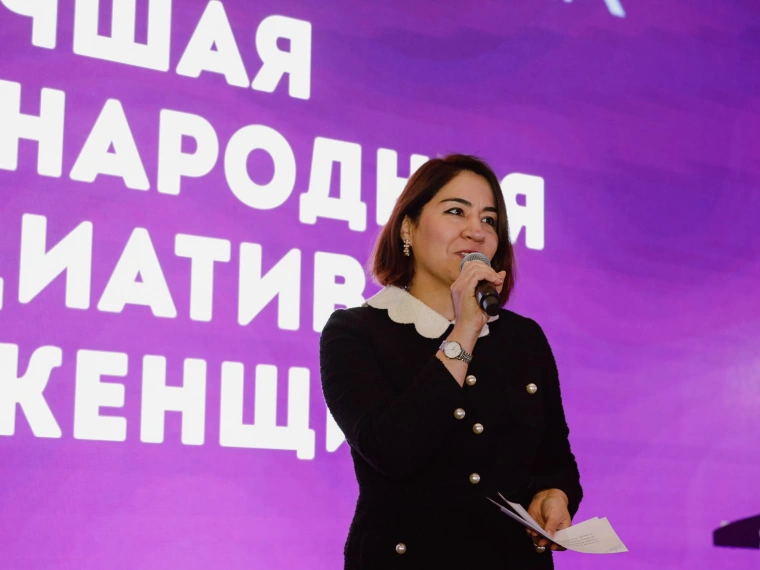
Oraclus: Search Engine Developed in Kazakhstan Uses GPT Algorithms to Answer Any Question About Web3.
Oraclus is an innovative AI search engine that generates answers to any user request related to Web3. The service’s co-founder, Alibek Polatov, says, “To put it briefly, it’s a GPT for Web3.”
Alibek explained how Oraclus is different from its competitors and how this distinction will help the company expand internationally. STEPPE learned about the team’s efforts to extend the business beyond Kazakhstan and why cryptocurrency is valuable to the global economy.
Who stands behind the project?
Three partners — Alibek Polatov, Magzhan Ikram, and Yerdaulet Absattar — founded the project in 2021. They decided to launch a startup in crypto trading and assembled a crew of specialists. As of now, the project is conducted by ten people, including the founders, backend and frontend developers, a team leader, and a few outsourced employees — one designer, one lawyer, and an accountant.

What is the Oraclus Search Engine?
Orclus functions similarly to ChatGPT but uses information exclusively inside or surrounding Web3. The Oraclus agents are updated in a timely manner — new safe sources, such as analytical portals and platforms, are constantly connected to the engine.
“The user sends a request by simply pressing the button, and our agents momentarily understand where to look (for information). They find valuable services and pull data,” — Alibek describes the engine’s primary function.
Users entering the website see a “one-stop shop” (a single window for requests) where they can ask any questions about cryptocurrency trading and Blockchain. For example, they can learn about bitcoin capitalization, what is implied by ‘Mempool,’ and even check the status of a personal transaction. Regardless of question specificity, the algorithm automatically aggregates relevant information from all available sites and carefully assesses risks. The user acquires an applicable detailed answer in real-time.
What algorithms were the basis for Oraclus’s AI? What are the advantages of an interactive search engine?
Oraclus operates on GPT-4, Llama, API, and Perplexity algorithms that help to interpret and generate coherent text similar to human speech. This format allows beginners to apprehend information and start industry engagement with maximized efficiency.
At first, Oraclus offered behavioral analytics, observing public account transactions. Later, the company added the functions of alerts and monitoring of big industry players. Oraclus analyzed where and how these players invest personal assets and which tokens they purchase, delivering predictions based on this information.
Over time, it became apparent that users are more interested in a “one-stop” service that allows for a direct dialogue with the AI chatbot and produces immediate, applicable responses. The Oraclus team reformatted the AI chatbot into their main product in response to increasing demand. Other analytical companies use this interactive feature as an additional tool for different products, focusing on existing client bases.
According to Alibek, with the takeoff of GPT, independent search for information in different sources through engines like Google or Yandex is losing popularity. New solutions, including Oraclus, enable users to save time on autonomously searching for sources and collecting data for analytics.
Why is cryptocurrency nothing to be scared of? Why is it valuable to the global economy?
“The blockchain system is decentralized and open. For instance, there is no need to wait three to four days to send a million dollars from a wallet in Kazakhstan to one in the US. Inside the blockchain, this kind of transaction is performed in seconds and absolutely transparently,” — Alibek describes the potential of blockchain technology.
There are lots of innovations surrounding blockchain, not only in transactions but also in decentralized finance, mechanisms of contract signing, and the gaming industry. Regulators monitor all blockchain processes to minimize the risks of fraud. With the use of blockchain technologies, companies operating digital currencies get access to complete information necessary for risk assessment and financial forecasting. In the future, online banking will likely introduce instruments that let clients follow blockchain transactions through mobile apps.
Could Oraclus or its alternatives guarantee user anonymity?
Services that seek to secure full user anonymity exist. At the same time, big centralized stock markets, such as Binance and Bybit, do not hide wallet details to demonstrate liquidity and ensure clients’ trust in asset security.
Some traders also use the absence of full anonymity to their advantage by demonstrating expertise—they openly share information concerning their wallets and business operations to attract other traders.
How does the Oraclus team plan to penetrate the global market?
In Kazakhstan, the number of businesses employing blockchain is minimal, limiting Oraclus’s opportunities to evolve within the local market. The service’s current client base has around three thousand active users from various countries, mainly the USA and Nigeria. The team is busily planning to push the project in North America and Southeast Asia, as these regions dominate industry development in crypto trading and digital currencies. At the same time, an ample portion of these populations are familiar with the GDP technology.
Are there any nuances in the US legislation concerning cryptocurrency that support its rapid growth? What practical solutions exist for Kazakhstan?
If Oraclus offered financial services, the company would need a license to work in the US. As of now, the service concentrates solely on data collection, accuracy, and relevance of generated responses and is, therefore, ultimately prepared for the American market.
Alibek believes that to efficiently develop blockchain technologies in Kazakhstan, initiating educational programs is essential. Launching university courses related to digital currencies and AI, hosting hackathons, and other instructive events are easy steps that would allow residents to familiarize themselves with crucial technologies and build a community.
What other AI tools does the startup team find helpful? Any recommendations?
The specialists of Oraclus regularly incorporate AI innovations into everyday work processes: GPT-4, Gemini, Claud, Llama, and Perplexity. Alibek notes Perplexity — a search engine competent in assembling various responses into a single text. The team occasionally uses Gemini and GPT-4. In the context of crypto, they often turn to 0xScope, which is also studied in detail. This tool enables access to beneficial knowledge and performance of deep analysis around Web3, contributing to the evolution and further refinement of the final product.





